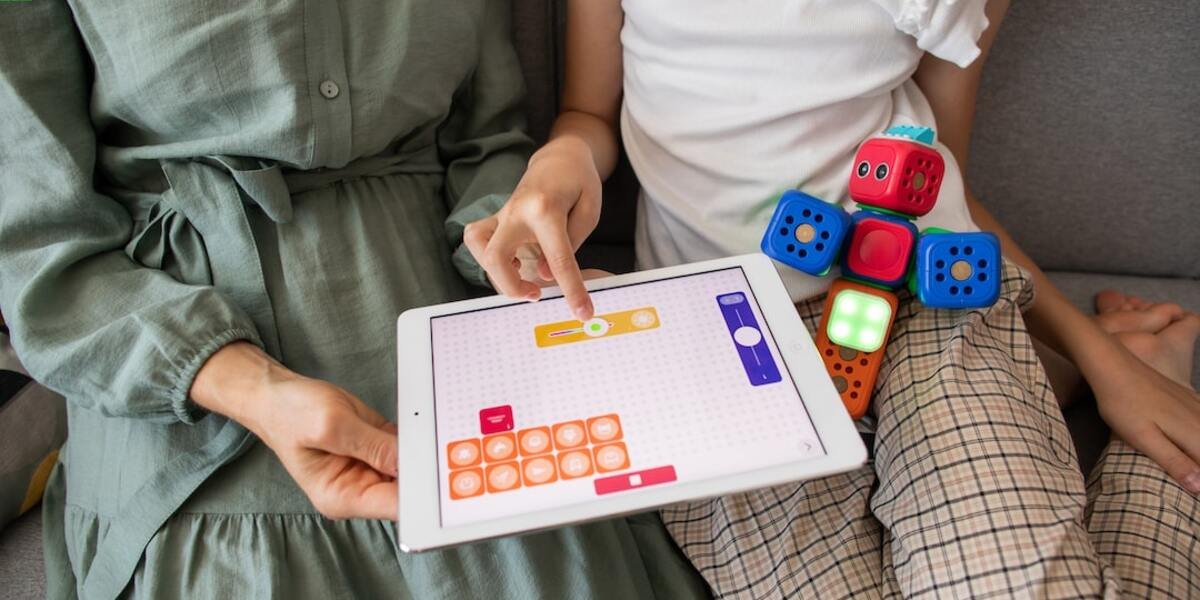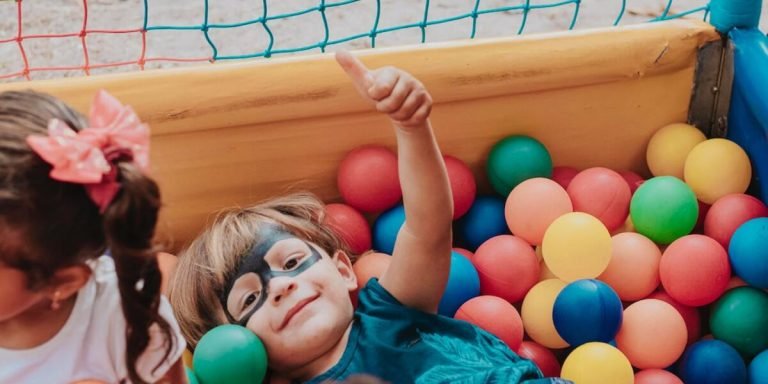Play Based Preschool: A Comprehensive Look into Child-Led Learning
Understanding the concept of “play based preschool” can be a game changer when it comes to early childhood education. This approach, rooted in Activity Based Learning (ABL), emphasizes the importance of letting children lead their own learning journey through guided play. Naturally inquisitive and creative, children thrive when they are allowed to explore concepts and ideas at their own pace.
Play based preschools have become increasingly popular due to substantial evidence supporting ABL’s benefits for young learners’ cognitive growth and social skills development. Today we delve deeper into what this educational model implies regarding curriculum structure, instructional methods, potential challenges & advantages – laying out an all-inclusive roadmap on implementing child-led learning effectively.
Did you know?
Play-based preschools, which emphasize child-led learning, have been shown by recent studies to significantly enhance cognitive flexibility and executive function—key skills for sustained academic success.
Understanding the Role of Activity-Based Learning in Play Based Preschools
Activity-based learning has taken center stage in play based preschools, revolutionizing traditional teaching methods. This strategy is more than just fun and games; it offers practical experiences that help children grasp complex concepts easily. In the dynamic world of education today, where technology integration plays a vital role in shaping young minds, leveraging activity-based learning to harness kids’ natural curiosity can yield significant benefits.
Skill development happens best when learners are actively engaged rather than passively receiving information. Play based preschools understand this innately and shape their curricula around activities designed for hands-on experimentation and discovery. These lessons are then augmented with various digital tools such as interactive apps or smart toys specifically designed to aid students’ understanding of different concepts – making both learning process enjoyable while embedding tech-savviness from an early age.
The beauty lies not only in developing cognitive abilities but also cultivating social-emotional skills through group interactions during these activities at play based preschools adding another layer to holistic child development. With advancements in 2023’s educational technologies like virtual reality (VR) environments or AI-powered tutoring systems, there’s now even greater potential to incorporate technology into activity-based pedagogies—bridging the gap between physical experience and digital exploration within classrooms.
The Core Principles of Activity-Based Learning in Early Childhood Education
Activity-based learning is instrumental in providing a dynamic and engaging environment for children attending play based preschools. This innovative methodology comprises several core principles that have been designed to facilitate early childhood education.
Firstly, an Activity-Based Learning approach emphasizes the importance of hands-on experiences. The objective isn’t simply about teaching facts or theories; it’s about inspiring curiosity and encouraging young learners to physically interact with their surroundings. For instance, instead of just reading out loud from a storybook, educators may arrange interactive puppet shows helping children become active participants rather than passive listeners.
Secondly, this pedagogical strategy focuses on exploration as a formative method of learning. In play based preschools utilizing activity-based learning models, classrooms transform into exploratory playgrounds where each corner offers unique discoveries awaiting curious minds—an arrayed basket full of various shapes helps recognize patterns while buried sand toys encourage scientific inquiry beneath surface appearances.
Lastly comes child-centric instruction where customized activities catering individual needs are preferred over one-size-fits-all dictates —after all what works best for Jack might be different from Jill’s ideal way!
Implementing Kinesthetic Teaching Strategies for Enhanced Engagement
Kinesthetic teaching strategies have been proven to enhance learner engagement in play based preschools. By implementing these techniques, educators can create an immersive learning environment that bridges the gap between physical activity and cognitive development.
One of the most effective ways to incorporate kinesthetic teaching is through activity-based learning (ABL). This approach encourages children to learn by doing, making education a hands-on experience rather than a passive intake of information. For instance, science concepts come alive when students get their little hands dirty planting seeds or observing insects in nature instead of just reading about it from textbooks.
In 2023’s digital age where technology integration in education has become indispensable; tablet games can be used for math activities where kids drag and drop shapes into correct sequences or count objects on screen – transforming abstract lessons into tangible tasks. Language skills too improve immensely with storytelling apps that allow kids narrate stories thereby enhancing verbal expression while promoting creativity simultaneously.
Educational robotics kits are another powerful tool fostering ABL as they impart coding basics along with reinforcing problem-solving abilities and logical thinking among young learners. Children learn better when they construct knowledge themselves adjusting lego blocks forming robots understanding engineering principles subtly underlying enjoyable gameplay sessions.
Maximizing Cognitive Development Through Play: Techniques and Approaches
Maximizing cognitive development in young children is no small task. However, play-based preschools have become a beacon of hope for parents and educators alike eager to stimulate mental growth naturally within an enjoyable environment. These targeted learning platforms focus on fostering curiosity, imagination, problem-solving skills and communication abilities through various forms of play.
Incorporating technology into activity based learning offers revolutionary possibilities as we move further into the digital age. The integration helps shape dynamic experiences that are fun yet educational at their core – subsequently helping kids develop vital 21st-century skills like coding or understanding how machines work from an early stage.
Traditional methods such as Legos can now coexist seamlessly alongside virtual reality sessions where students build holographic structures; fostering multi-dimensional understanding which crosses both tangible environments and cyberspace!
It’s thus essential that teachers harness these innovative strategies to foster not only technological literacy but also cultivate holistic cognitive expansion among students by tapping into their innate love for exploration via immersive ‘play’. Magic happens when education becomes something more than rote memorization in classrooms — it transforms into a journey full of creativity, laughter and discovery; one where every step forward feels interestingly rewarding instead simply obligatory due textbook mandates.
Integrating Storytelling and Dramatic Play to Foster Cognitive Skills
The power of storytelling and dramatic play cannot be underestimated. It plays a significant role in activity based learning, specially under the umbrella concept of “play based preschool”. This approach is not only enjoyable but it also boosts children’s cognitive development.
Children are innate story tellers. They learn more effectively when they are active participants in their education rather than just passive recipients. Storytelling presents unique opportunities for kids to weave narratives while involving physical movement and expressions – a holistic educational experience that promotes complex thinking skills and creativity.
Incorporating technology can add another layer to this interactive learning process which corresponds well with current trends in 2023 both at home and within school settings. Educational applications or e-books provide rich content stimulating imaginative scenarios that can drive dramatic play sessions amongst peers or even individually conducted by the child themselves.
Simultaneously, using simple digital tools like audio recorders or cameras permits children to document their enactment of stories broadening further reinforcement strategies as well as adding an element of fun during evaluation stages. Digital platforms facilitate sharing these captured moments with parents enabling them engage actively along side teachers reinforcing continuity between schooling experiences from classroom environment towards domestic sphere thereby cementing deeper bonds amidst learners community too.
Designing Interactive Games that Promote Problem-Solving Abilities
A foremost strategy for maximizing cognitive growth among youngsters today involves designing interactive games that promote problem-solving abilities right inside a play based preschool set up.
To fuel your child’s imagination and enhance their critical thinking skills, infuse technology into learning activities by:
1. **Coding Games**: Coding not only teaches computer literacy but also enhances logic and reasoning abilities too. Introduce simple coding platforms like Scratch Jr or Kodable which are aimed at young learners with engaging visuals.
2. **Augmented Reality Puzzles:** AR apps can bring a world of wonder to traditional puzzles boosting creativity along with problem-solving skills.
3. **Tech-enabled Construction Sets:** Today there are digital lego sets available integrated with applications on mobile devices that engage kids in building structures encouraging visual-spatial awareness.
5.**Virtual World Exploration Games:** These allow children to construct their reality promoting decision-making capacities by overcoming challenges strategically designed within these games.
These interactive game designs don’t just promise entertainment; they categorically aim towards fostering analytical prowess amid students making them future-ready—taking activity-based learning strategies several notches higher than ever before!
Cultivating Social Skills with Group Activities in a Play Based Curriculum
Within the realm of early education, a play-based preschool stands as an effective model for cultivating essential social skills among children. It revolves around providing hands-on learning experiences through diversified group activities that encourage free exploration and creativity. In alignment with modern pedagogy trends in 2023, educators are innovatively incorporating technology into this educational style to create digitally-enriched activity based learning environments.
At its core, amalgamating play with group tasks fosters cooperation and mutual respect among peers- attributes necessary for successful societal integration later on. When these collaborative exercises are further enhanced by digital tools like interactive whiteboards or touchscreen tablets loaded with age-appropriate apps; they not only make shared assignments more engaging but also introduce students to basic tech-literacy concepts at tender ages – thus aligning beautifully well with today’s new-age technological paradigm within education systems worldwide.
Further strengthening our case is research indicating direct correlations between technologically-integrated curriculum & elevated academic outcomes coupled alongside improved interpersonal relations amongst pupil community. Drawing from such evidence-based insights, it’s time we rethink traditional classroom methods & embrace intuitive strategies offered via truly dynamic platforms – ones epitomized by our evolved Play-Based Preschools!
Navigating Peer Interactions: The Impact on Emotional Intelligence
In the realm of childhood education, navigating peer interactions is a critical aspect that helps mold and polish children’s emotional intelligence. This facet is especially significant in a play based preschool setting where youngsters learn not just through books but from their experiences.
As we move forward into 2023, technology integration in education has become an integral component even at the pre-school level. It aids to further encourage real-life skills such as socializing and learning via creative methods – this includes interactive games or group activities on digital platforms which foster teamwork among kids.
However, it’s important for parents and educators to strive towards maintaining a balance between cultivating traditional socialization traits while incorporating modern technological tools within an activity-based learning framework.
Group activities form the backbone of any play based curriculum; they are designed to let kids interact freely with each other under supervision allowing them insight into essential life-skills like sharing or showing empathy naturally. Activities might range from playing collective games online together under guided instructions or solving puzzles collaboratively using educational apps catered specifically for younger minds – all aiming towards boosting intellectual growth simultaneously fostering inter-personal relationships amongst peers.
Play-based preschools integrating technology imbibe freedom giving students reign over their own choices during group tasks – either selecting roles digitally by themselves or choosing who they want as team-mates teaching them decision-making firsthand without realizing its gravity more often than not!
Building Teamwork through Collaborative Projects and Group Challenges
In an era where technology rules, a play based preschool approach is highly beneficial in successfully integrating social skills and tech-education. One inventive strategy to achieve this balance lies within the realm of collaborative projects and group challenges — essential components in any activity-based learning environment.
The beauty of using these collaborative approaches in teaching teamwork lies with hands-on practical execution. Children learn more efficiently when they actively engage with their peers during tasks or games rather than just receiving instructions verbally. By working on team-oriented assignments, children naturally develop negotiation skills as well as become accustomed to contributing ideas while respecting those from others—core values that help mold effective communicators.
Furthermore, group activities such as constructing a building out of Lego blocks or creating art collaboratively can be opportune moments for teachers to introduce digital tools relevant to the task at hand. For instance, simple architectural software could enhance their block-building project by allowing them create virtual drafts first before commencing construction physically; this not only promotes IT literacy but also inspires creative thinking among youngsters.
Another promising avenue includes group challenges that involve problem solving through digital platforms. Engaging puzzles or quizzes available online can stimulate intellectual curiosity among kids compelling them work together effectively for solutions – thus honing both critical-thinking capabilities and cooperative competencies simultaneously.
Conclusion
In essence, a play based preschool is more than just a playful haven; it’s an innovative and insightful forum where your child engages the world through their unique lens while developing crucial skills. This wholesome approach towards early education puts kids in command of their learning journey, stimulating curiosity, imagination and cognitive abilities – all under the veil of delightful play.
We encourage you to continue exploring our website for more insights into children’s education and various teaching methodologies like this one. We’re committed to furnishing information on relevant subjects that would support parents and educators alike because we believe every child deserves an enriching start in life. Let us guide you as you navigate these formative years with your young learners – after all, isn’t lifelong education truly rooted within those initial helpings at ‘play’ school?







